It’s easy to become overwhelmed by healthy eating, with expensive ‘superfoods’ seeming like the only way to cook nutritiously. But this is simply not the case — health foods are hiding in plain sight at every grocery store across the country. Fresh, frozen, shelf-stable and more, these delicious whole foods benefit your total body health, without breaking the bank.
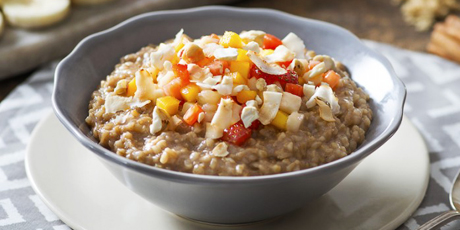
Swap in Steel-Cut Oats
Step away from the instant oatmeal packages and turn to chewy, hearty steel-cut oats. Find these at your bulk food store or in the cereal aisle, and use them as a blank canvas for both sweet and savoury dishes. Quick-cooking steel-cut oatmeal is available, though you can soak the regular variety overnight or pop it in the slow-cooker while you sleep for a ready breakfast come morning. Add some nourishing sunshine to your morning with this tropical-inspired creation.

Make a Frittata
Eggs are one of the most underrated everyday health foods. With protein, iron, good-for-you fats, choline for a healthy brain and lutein to help with eye health, they practically do it all. Great anytime of day, the incredible egg is an affordable way to supplement your healthy eating goals without breaking the bank. Try them in a veggie-packed frittata for breakfast, lunch or dinner.
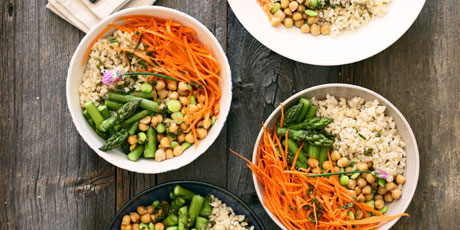
Go Meatless on Monday
Pick one or more days per week to go fully meatless, focusing on the highly affordable protein found in beans, legumes, eggs and tofu. Transform humble chickpeas into an edible masterpiece with this springtime grain bowl, ideal for lunch or dinner on the days you go meatless, or any day.
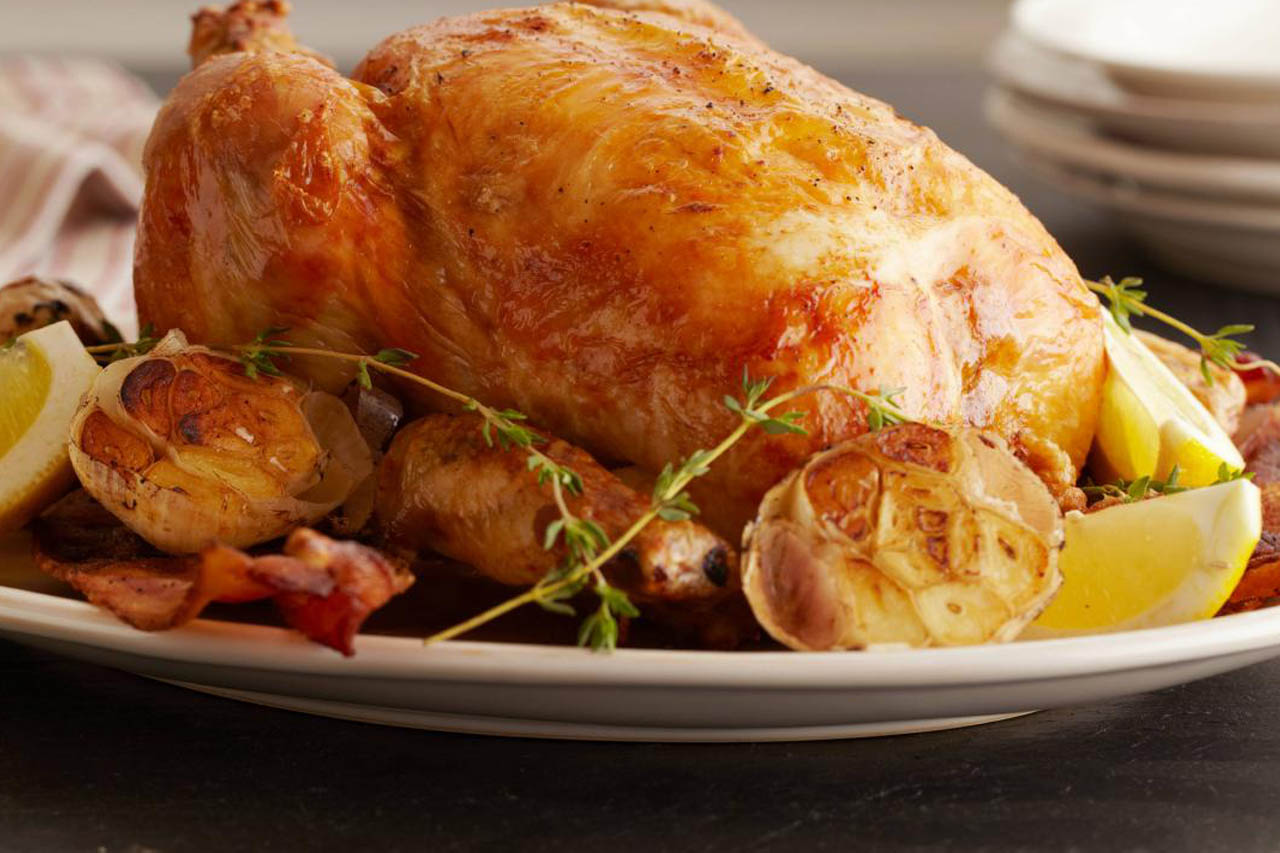
Whole Roasted Chicken
Chicken is a lean protein that many of us turn to for dinner. Boneless, skinless breasts are more expensive than a whole chicken because you’re paying someone to prepare them for you. A whole chicken can feed a family for far less, and you can make a nourishing bone broth with the carcass afterwards. The Barefoot Contessa’s recipe shows you just how easy it is to cook up, even on a weeknight.
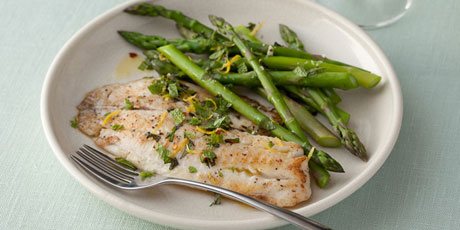
Choose In-Season Foods
Shopping in season is a simple way to enjoy a healthy diet on a budget, without even thinking twice. Head to your local farmers’ market or grocery store each week with growing seasons in mind. For instance, buy asparagus in April or May (not December!) and strawberries in June. In the summertime, you’re spoiled for choice, though this way of cooking and eating works year-round.

Homemade Granola
The granola you find in the cereal aisle is not only expensive for the small amount you actually get, but also not always that healthy. If you’re looking to save money on this sweet breakfast treat, it’s easier than you’d think to make at home. Think beyond breakfast and crumble this over baked apples for dessert, or pair with plain Greek yogurt for an afternoon power snack.

Use Frozen Vegetables
Picked at the peak of freshness and flash frozen, these ice-cold health foods are often just as nutritious as they are fresh. Choose frozen produce free of sauces, salt and sugar, and keep your eye out for sales during the week. They’ll keep for months, allowing you to buy in bulk and add to stews, stir-fries, salads, sides and soups, like this nourishing creation from Alton Brown.
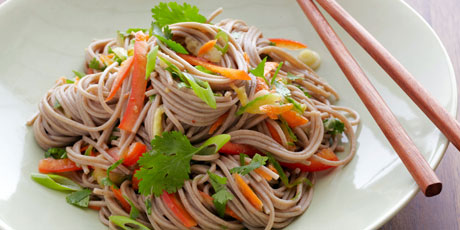
Pack Your Lunch
Buying your lunch is expensive. Planning ahead is key to making healthy eating affordable. A little meal prep on Sundays will go a long way during a hectic workweek to make sure you’re eating homemade fare more often. Grain and noodle salads, like this soba recipe, keep well for days and transport beautifully in your container of choice.
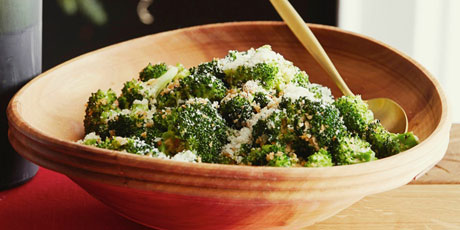
Everyday Superfoods
Everyday superfoods include apples, broccoli, cauliflower, cabbage, blueberries, lemons, oranges, brown rice, oatmeal… The list goes on. These are the foods that were championed by our parents (“eat your broccoli”) but we’ve put them aside due to more trendy (and more expensive) ingredients like goji berries. Broccoli, in particular, is delicious year-round, often being sold for as low as $1 a bunch. Skip steaming and add some rich roasted flavour to the humble crowns with this healthy recipe.
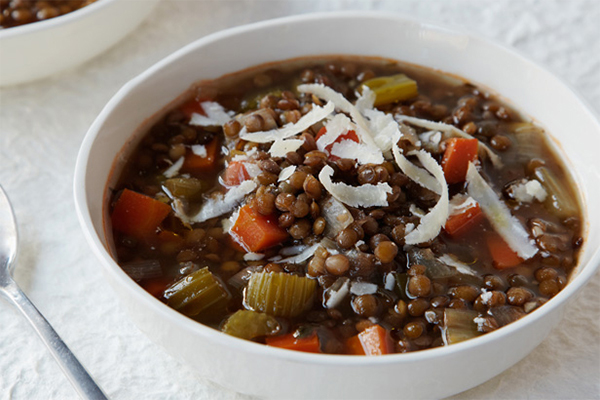
Batch Cook
Batch cooking on weekends means you’ll have healthy breakfasts, lunches and dinners for the whole week. For example, a big pot of stew, soup or chili lasts a week in the fridge and even longer in the freezer, removing unhealthy takeout from your dining equation.
Get the recipe for Ina Garten’s Lentil Vegetable Soup
Allison Day is a cookbook author, nutritionist (RHN) and the creator of the award-winning food blog Yummy Beet
